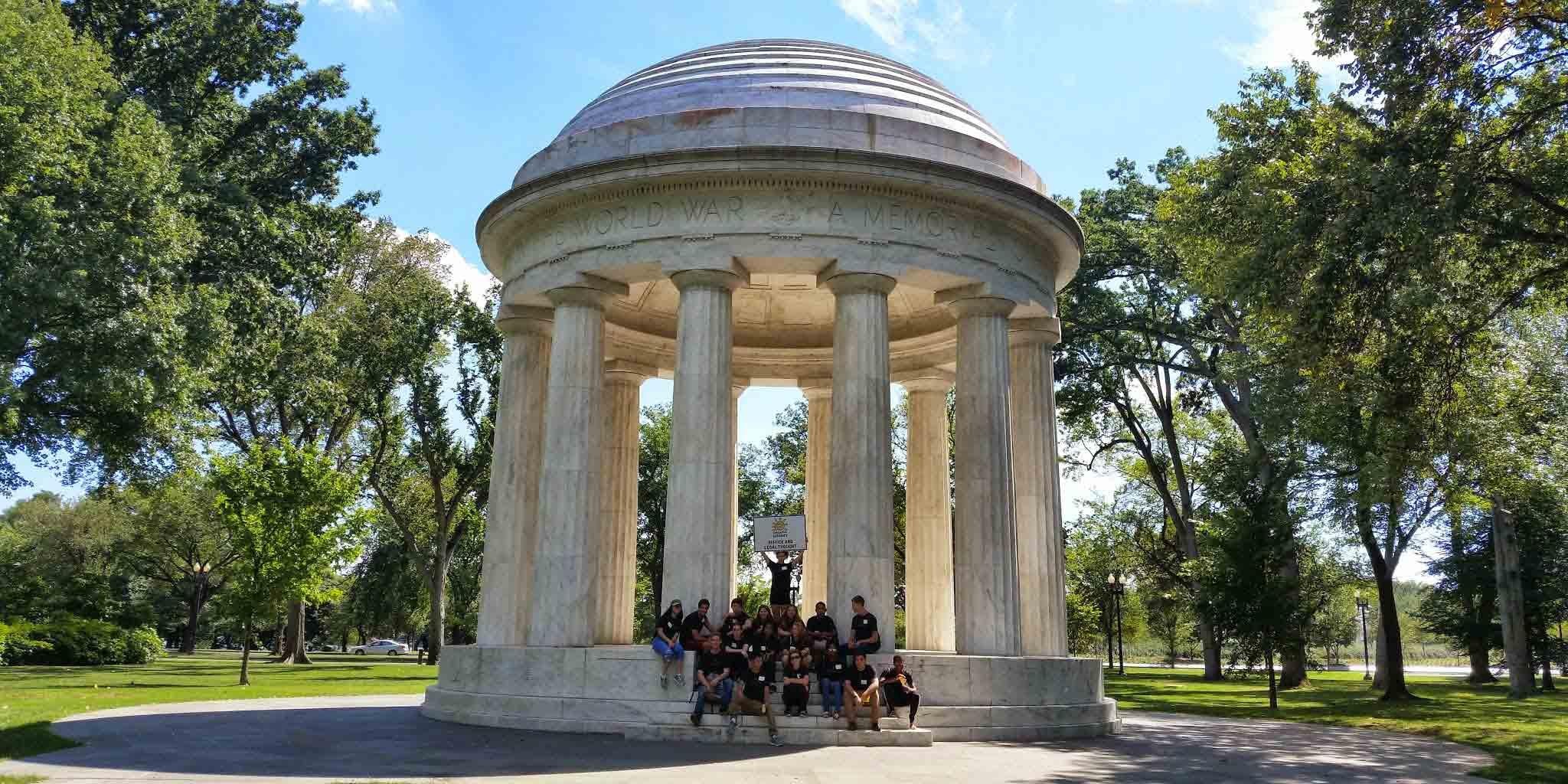
Every spring when incoming college freshmen are invited to join College Park Scholars, we receive questions from prospective students and parents, asking for clarification on various aspects of our program. Here, we’ve gathered the four most frequently asked questions (FAQs) to aid you in your college decision-making process.
What is the value of a living–learning community?
The benefit of a living–learning community is that you connect with other students on both a social and an academic level. In College Park Scholars, students live in the same residence hall and floor as other people in their programs, enabling built-in study and social groups and helping to foster community.
Students take colloquium and a couple supporting courses together. The colloquium is a discussion-based course that explores different facets of the program’s theme, giving students an opportunity to explore and challenge their beliefs on certain issues. This opportunity for open discussion also connects students. Often, such discussions continue outside of the classroom into the residence halls.
Finally, because our faculty members have offices in the buildings in which the students reside, students also have built-in connections with faculty and staff. This often makes it easier for students to get recommendations (for internships, jobs or other opportunities) than students not involved in a living–learning community.
Will Scholars isolate me from other non-Scholars students and the rest of campus?
Not at all. Beyond colloquium, students take all of their classes with other University of Maryland students. Further, most students join clubs or organizations on campus that allow them to make friends with all kinds of people. The Scholars program will be just one (fantastic!) aspect of their college career.
College Park Scholars is also located on North Campus, where most freshmen reside. Living next to other residence communities--and near Maryland Stadium, Eppley Recreation Center and North Campus Diner--Scholars students will have many opportunities to interact with non-Scholars students .
Can my Scholars program be different from my major?
Yes! Any major can participate in any Scholars program. We in fact encourage students to choose a Scholars program different from their major, as this will allow for greater opportunity for interdisciplinary study. It also means students are more likely to be exposed to differing perspectives in their classroom discussions. We have had biology and pre-med students as Arts Scholars, and business majors as Media, Self and Society Scholars, for example. (Engineering majors have enrolled in all 12 programs!)
In some ways, your Scholars program can act like a minor, supplementing your major courses with something else that you may be interested in learning more about.
Whether you choose a Scholars program that supplements your major or one that is completely different from your core studies, what’s most important is that you are academically curious, looking to explore interdisciplinary interests.
What is the time commitment to be a part of College Park Scholars?
College students usually take five to six classes a semester. When you’re in Scholars, one or two of those classes will pertain to your Scholars program. The nice thing with this, though, is that the supporting courses in Scholars usually satisfy some kind of graduation requirement--general education, major requirement or an elective. This means colloquium is typically the only course on your schedule that you wouldn’t be taking if you weren’t in Scholars.
Aside from the academic requirements, the time commitment of Scholars is what you make of it. Some students choose to volunteer for opportunities within Scholars that involve them more with their programs and the greater Scholars community. They may therefore join our Scholars Ambassadors program, the Scholars Advisory Board or Lakeland STARS tutoring program. Some students will attend Scholars extracurricular activities, such as movie screenings, ice cream socials and panel events. Ultimately, the level of involvement in College Park Scholars is determined by each individual student.
This is the third blog post in our “Choosing Scholars” series, where we highlight different aspects of the College Park Scholars program to aid high school students in making their college decision. The first blog in the series discussed the interdisciplinary aspects of College Park Scholars. The second provided student accounts of why they chose the University of Maryland as their college.
About the Author:
Katie Bemb is a journalism major and an alumna of the Public Leadership Scholars program. She has worked in the College Park Scholars communications office since early 2016. Katie is apparently not a fan of free time, given that she seeks out new internships, jobs and campus programs each semester. Upon graduation, she hopes to use her communication skills to enact social change through domestic policy and global human rights development.